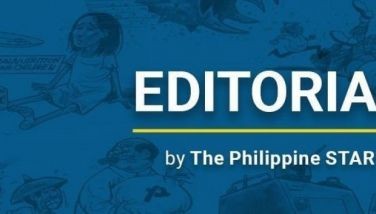The killing of journalists
The worldwide reaction to the Wednesday massacre of 12 people that included 10 journalists in the Paris office of the French satirical publication Charlie Hebdo by two masked, Kalashnikov-wielding gunmen was overwhelming. People expressed their outrage at the murders, while international media outfits issued the strongest condemnation of the assault, said to be the deadliest ever made against Western journalists since 1992 according to data from the New York-based Committee to Protect Journalists (CPJ).
French police authorities mounted a massive security dragnet with over 80,000 police personnel mobilized all throughout Paris to hunt for the two suspects. The manhunt resulted in a hostage taking incident when the suspects — after a high-speed car chase and a shootout at one of the roadblocks put up by the police — holed up in a printing house northeast of Paris. The situation became even more critical when a colleague of the suspects stormed a Jewish supermarket in a nearby town and took five people hostage. The standoff lasted for several hours before the police launched an assault and killed the suspects. Unfortunately, four of the supermarket hostages died while four more were seriously injured.
The slaughter of the French editors and staff of the weekly satirical magazine is a grim reminder that journalism continues to be one of the most risky — and deadly — professions in the world. A year-end release by the International Press Institute noted that at least 100 journalists lost their lives in the pursuit of their profession in 2014, and although the number is considerably lower compared to previous years (120 in 2013 and 133 in 2012), the number is still unacceptable especially since most of those responsible for the murders have remained largely unidentified and unpunished.
Filipinos don’t need to look too far for proof that indeed, journalism has become a very risky profession. A day after the attack on Charlie Hebdo, a female journalist was gunned down on her way to work — making her the first victim this 2015, the 172nd since 1986 and the 31st under the current administration. No wonder the Philippines continues to be notorious as one of the most dangerous countries for journalists — the third in fact after Iraq and Syria because of the Islamic State’s (ISIS) beheading of American journalists.
Not surprisingly, initial news reports about Charlie Hebdo inevitably recall the November 2009 “Maguindanao massacre” — an absolutely barbaric act where 58 people including 32 members of the press were kidnapped and brutally murdered, with some of the women journalists also raped before they were gunned to death. The Maguindanao massacre has gone down in recent history as the single deadliest attack against journalists anywhere in the world. A sad footnote to this gruesome massacre is the fact that not a single person has been convicted. Meantime, witnesses are being assassinated while the slow pace of the trial is driving anxiety that victims’ loved ones and relatives may not live to see the day when justice is finally served.
I remember when I spoke before the forum titled “Dying to Tell the Story” during the 2006 International Press Institute World Congress and 55th General Assembly in Edinburgh, Scotland where I was invited as a panelist, the situation then has remained the same today. The discussion focused on the alarming rise of journalists’ deaths all over the world, and what must be done to ensure the safety of journalists and make the killers accountable. At the time, the Philippines had gained notoriety as the most murderous place in the world for media practitioners.
The IPI congress also tackled the Danish cartoon controversy where editorial cartoons depicting the Prophet Mohammad published by the Jyllands-Posten newspaper in September 2005 led to violent demonstrations and protests — opening the debate on religious freedom and the media’s right to freedom of expression — the same underlying situation that most likely triggered the attack on Charlie Hebdo with its satirical cartoons and spoofs on the Prophet.
One of the points raised during the congress was whether freedom of the press was absolute in that it can be stretched to mean the freedom to issue material that may be deemed offensive or blasphemous. Like I reiterated during the IPI forum, freedom of speech and expression must be safeguarded at all costs, because implicit in democracy is the assurance of free speech and ultimately, of a free press. However, I also recognize that the exercise of such freedom must be tempered with responsibility, and excesses must be avoided in order for the public to trust journalists as purveyors of truth, not to mention catalysts for critical thinking. After all, there is such a thing as character assassination under the guise of press freedom.
Nevertheless, what remains crucial especially in the light of the Paris killings is to stop the emerging culture of violence against the media. Zealots and extremists should never be allowed to get away with murder. The exercise of the freedom of speech and of expression should not spell the death sentence for any journalist. As warned by former UNESCO Director General Koichiro Matsuura, “when violence poses a permanent threat to journalists, it poses a threat for the whole of society.”
Journalists are very much aware that threats and dangers go with the territory. Many also realize that they risk their lives as they attempt to bring out the facts and may “die telling the story.”
The biggest test for justice to prevail in the Philippines is for the rightful conclusion of the Maguindanao massacre. If we fail, then our country will forever be labeled as the most dangerous place in the world for journalists.
* * *
Email: [email protected]
- Latest
- Trending























